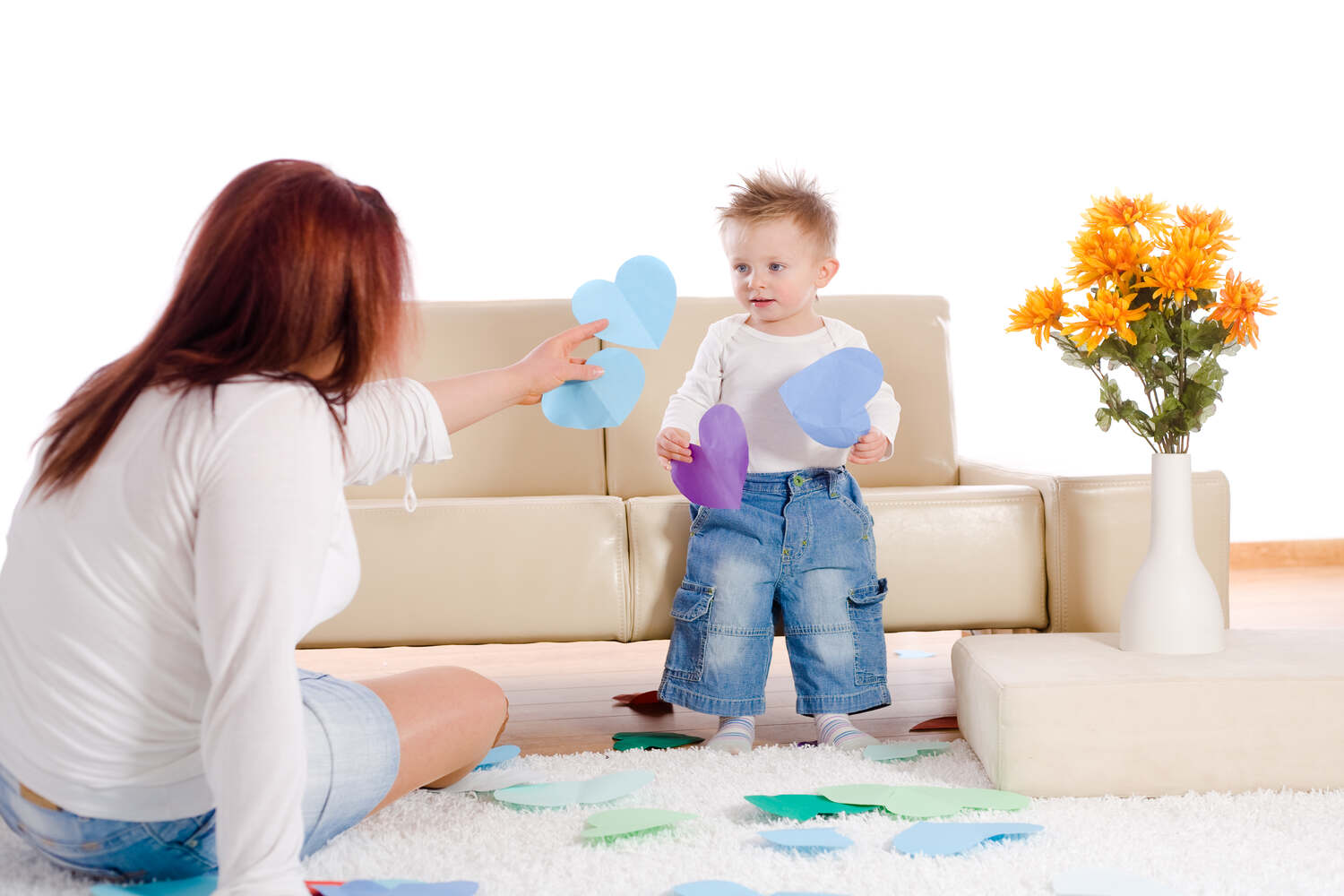
Your little one is 20-month-old and achieving many toddler milestones right on track. Did you know your toddler can do better physically and cognitively with a little help from you? Their brain is raw, ready to absorb everything like a sponge and they don’t know fear. This combination enables them to try all physical feats and grasp all the knowledge they come across.
What are the important toddler milestones your 20-month-old should be achieving this month? When should you worry about their development pace? Being a parent can be quite hard and challenging, especially when you are not sure of what to expect. Read on to know what are the various toddler milestones your kid can achieve in the coming weeks.
In This Article
- Developmental Milestones For 20-Month-Old Toddler
- Growth Chart For a 20-Month-Old Toddler
- Tips to Boost Your 20-Month-Old’s Development
- Health And Care of Your Toddler
- What Your Toddler’s Typical Day Looks Like?
- Some Useful Tips For Your Toddler
- FAQ’s
Developmental Milestones For 20-Month-Old Toddlers
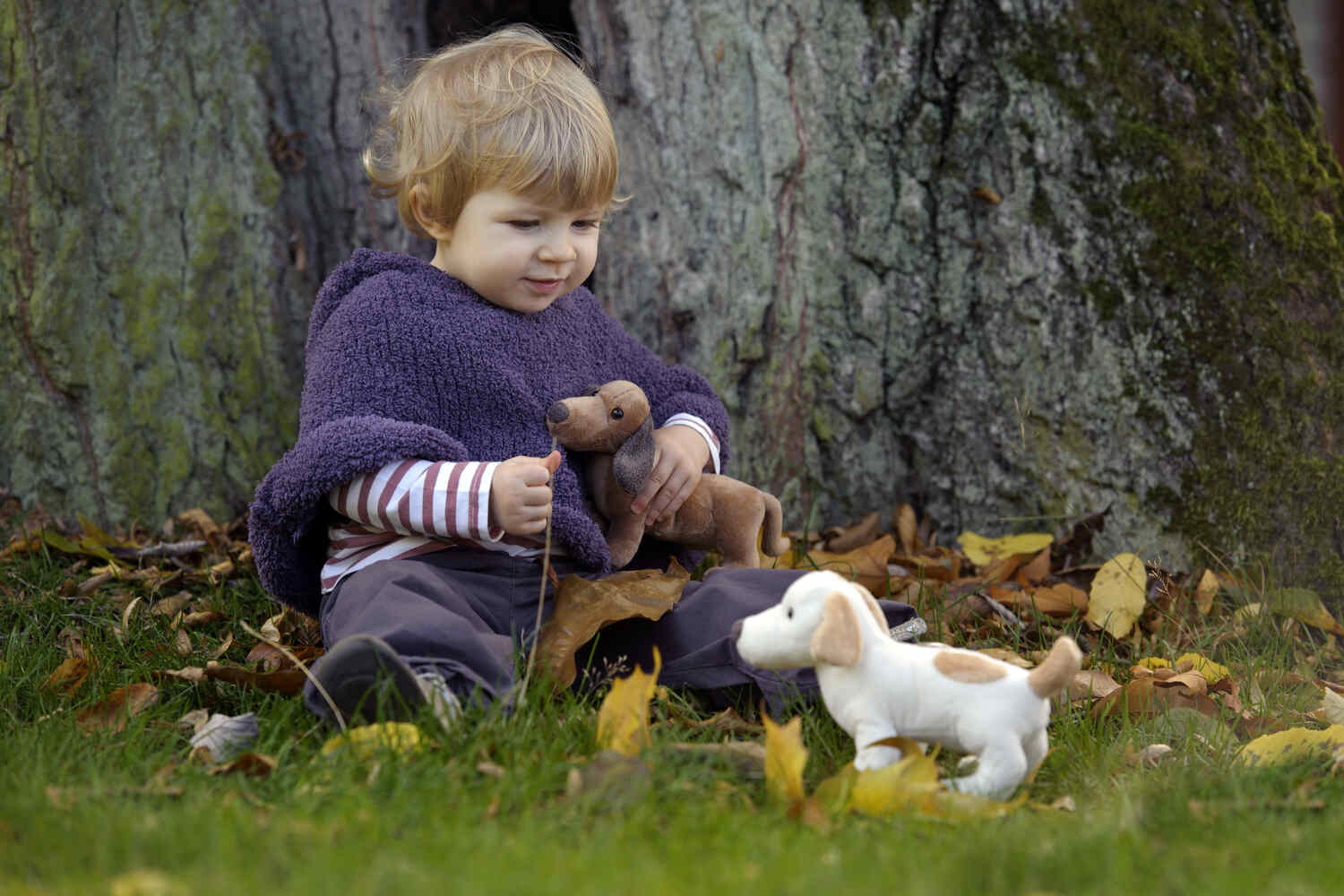
Here are some developmental toddler milestones your 20-month-old can achieve this month-
Communication Development
- Your toddler can now speak two-word phrases
- They will try to imitate or repeat the words you use
- They can now understand simple instructions like “give me the toy” “stand up”, “wear your shoes” etc.
Socializing
- Toddlers can recognize familiar faces – even the faces they don’t see every day
- When they recognize someone, they will show affection, smile, or try to converse with them
Pretend Play
- Your toddler is trying to be you or anyone they admire
- They will imitate your actions or words, try to dress up like you, and pretend to be you or someone specific
- They will enjoy pretend play – like walking the dog toy, putting their doll to bed, or driving their toy car and making car noises with their mouths
Cognitive Development
- Your toddler can now recognize colors and shapes
- They will enjoy shape or color sorting toys
- They will repeat their action many times or try tirelessly until they can get that shape inside the box
Behavioral Change
- As your toddler develops their individual personality, there will be many power struggles
- Your toddler will want to gain control and not feel powerless. They will resist almost everything – the food you give, the clothes you choose, the toys you buy, the places you take them to, etc. It can be quite tiring to keep repeating or reminding them to do or not do certain things
Gross Motor Skills
- Some toddlers may start kicking the ball. But this may vary from toddler to toddler. Some toddlers may take longer to do this. It all depends upon their sense of balance
Growth Chart For a 20-Month-Old Toddler
An average 20-month-old height and weight will be as follows-
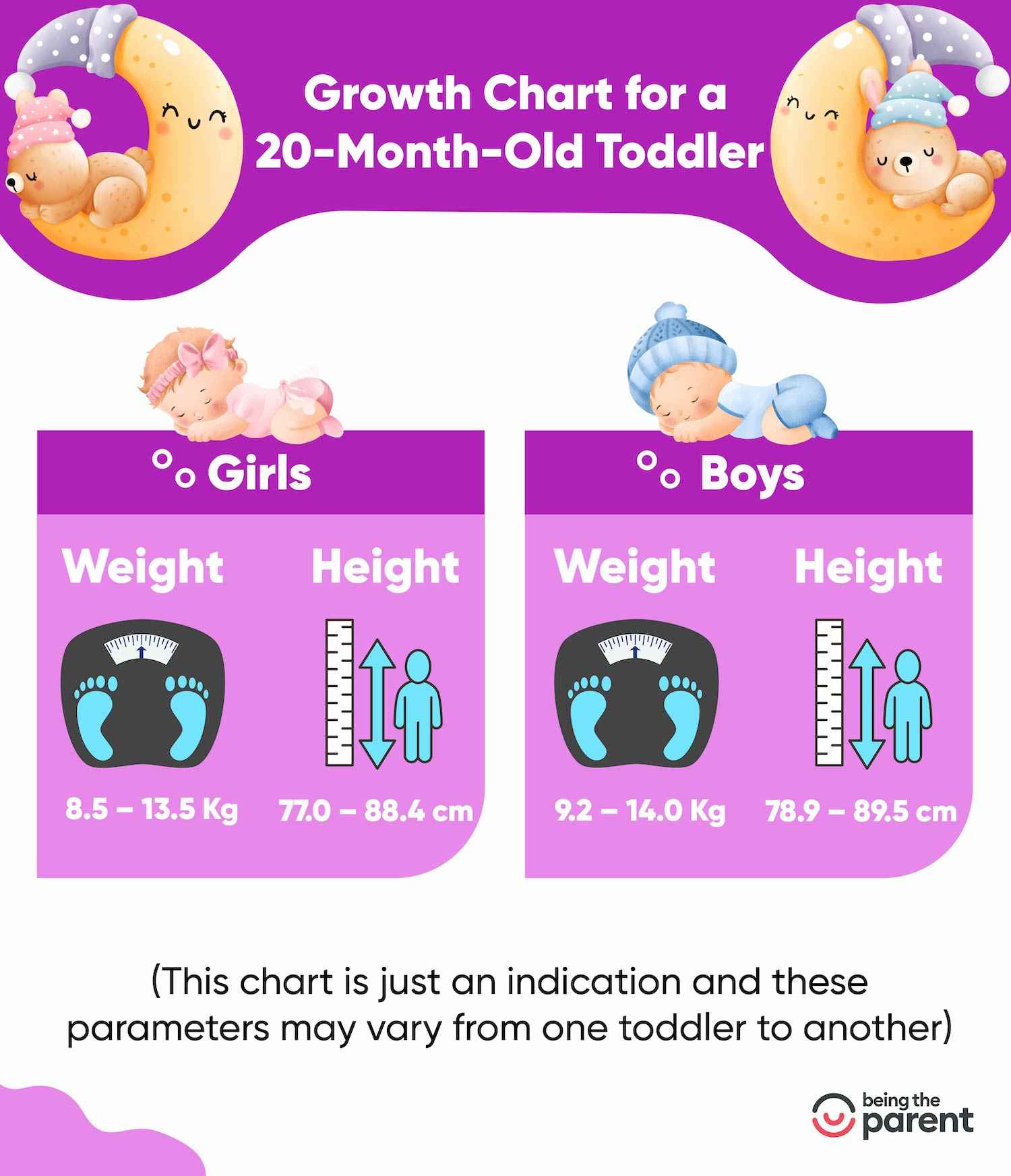
Tips to Boost Your 20-Month-Old’s Development
Here are some tips for parents to aid their 20-month-old’s development in attaining their toddler milestones-
1. Temper Tantrums
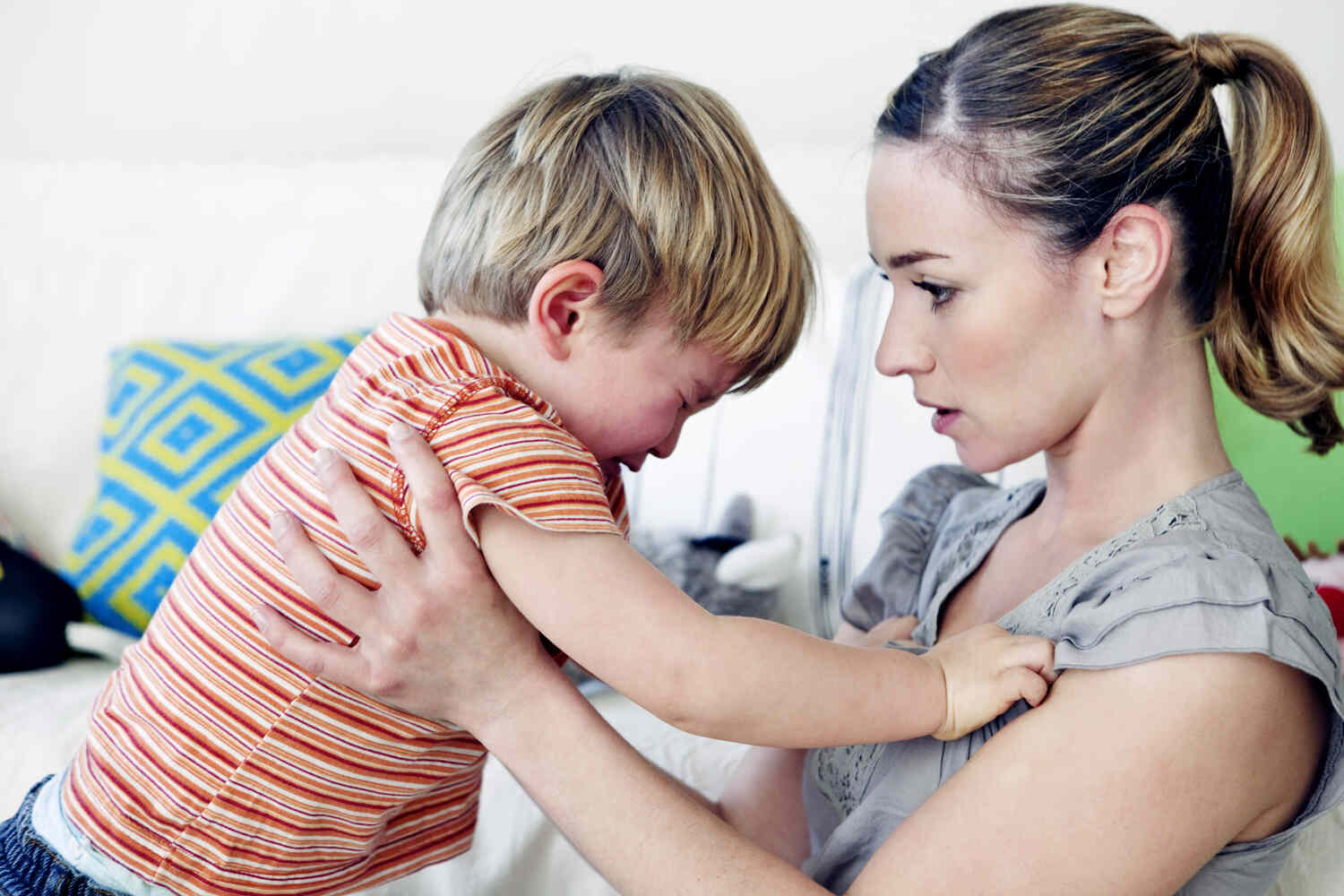
If your toddler is having big reactions to small incidents, it could be hunger or tiredness. If you are unable to pacify them, try putting them down for a nap or give them a healthy snack. In many cases, the tantrum is not just about what is happening right then but could be a combination of a few other factors too.
2. Model Behavior
Rather than constantly correcting or criticizing your toddler for their undesirable behaviors, try showing them how to do it. They will follow your actions more than your words.
3. Explain Cause And Effects
Toddlers are curious and will try to understand the effect of their actions, like throwing something, banging things, or tearing pages. Patiently explain to your toddler why it is an undesirable delivery, empathize with their feelings, and give them an alternate space or activity to occupy them.
4. Unstructured Play
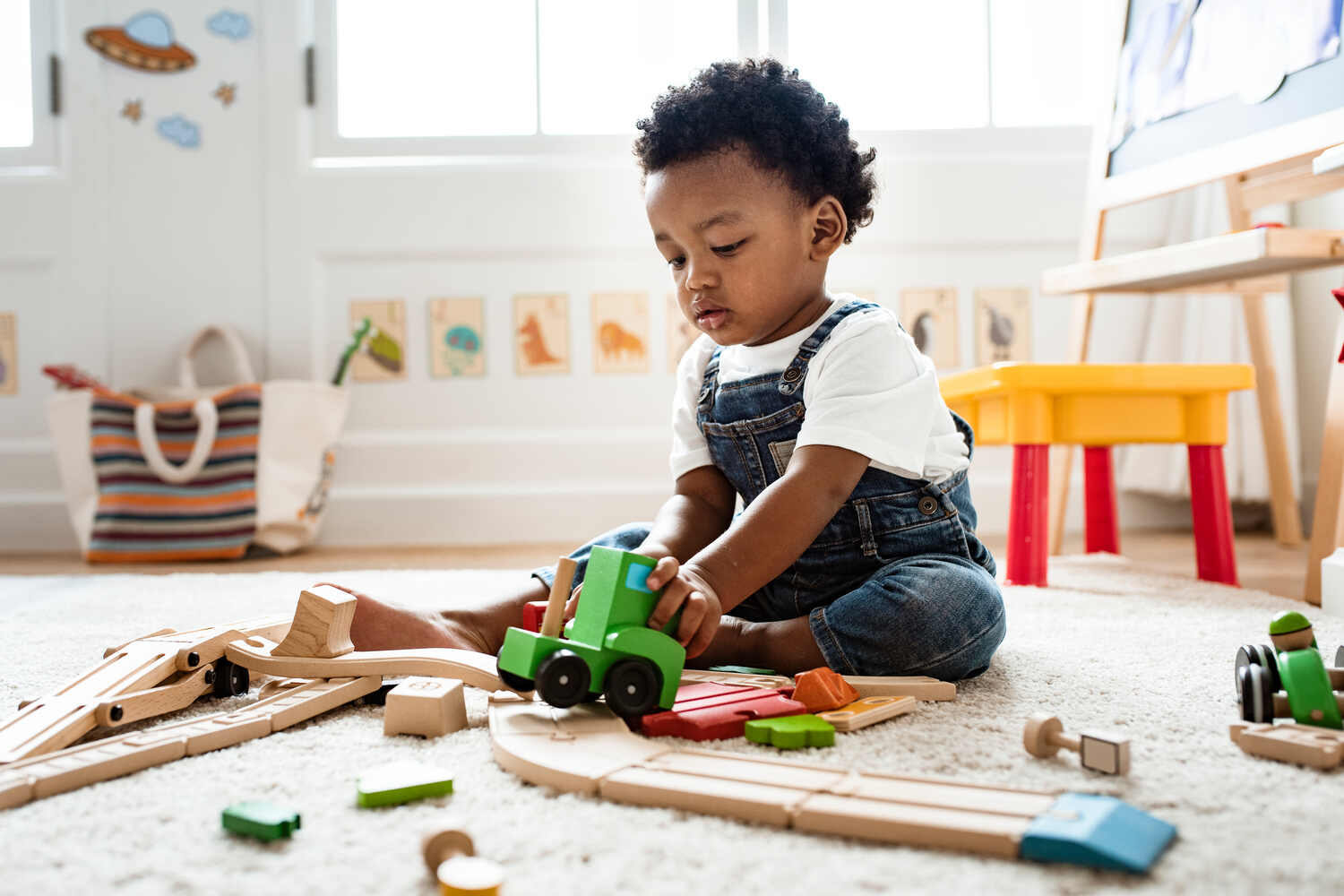
Toddlers at this age will not understand rules and conditions. Let them play the way they want. If they want to use the building blocks for some other game, let them. It will enable them to think out of the box and understand their surroundings more effectively (1).
5. Say no to Hurting
If you have pets or stray animals around, teach your toddler to not hurt or harm them. It is quite normal for toddlers to try and grab the cat’s tail, and throw their ball or toys at small animals. They are too young to know the consequences of their actions. Be gentle and firmly stop them from hurting animals and their peers.
6. Take The Pressure Off Meal Time

Toddlers can reject food and just not eat like before. Instead of pressurizing them or punishing them for not eating properly, just let them be. give them options and eat with them. Let them listen to their bodies and eat what their bodies want. This will foster a good relationship with food.
Health And Care of Your Toddler
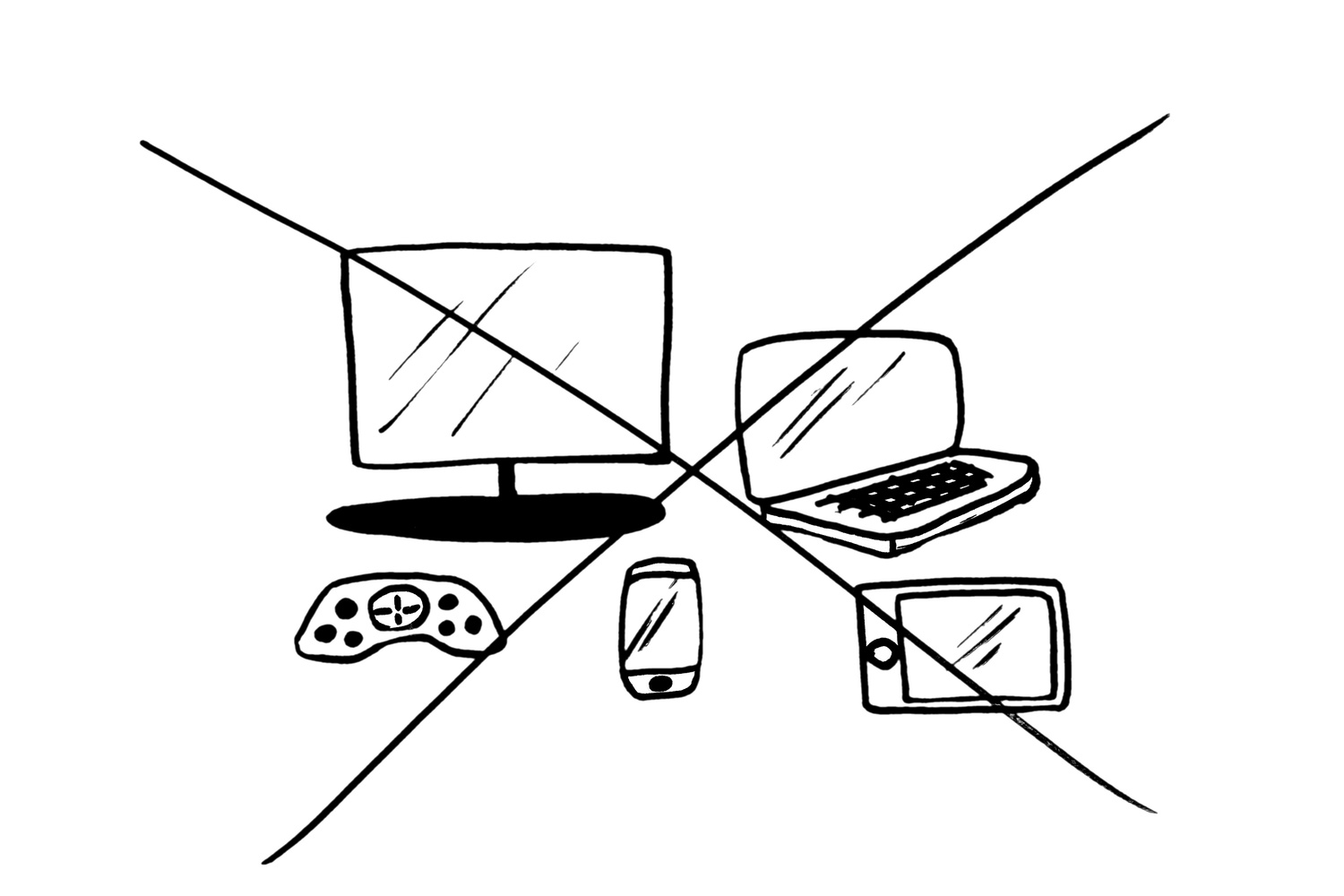
Here are some ways to effectively take care of your growing toddler’s health-
- Refrain from giving your toddler a smartphone or tablet
- Keep screen time to a minimum as it can disrupt cognitive and speech development (2)
- Give your toddler some diaper-free time every day to avoid rashes and irritation
- If your toddler has an infection, keep them home, give plenty of rest, and prescribe medications before you send them back to their playgroups or daycare
- Allergens can trigger allergic reactions including asthma, in toddlers. If the symptoms do not subside within the next week, you should consult your pediatrician
What Your Toddler’s Typical Day Looks Like?

Some Useful Tips For Your Toddler

Want to support your toddler in achieving their toddler milestones? Try these tips-
- When your toddler acts impulsively or reacts strongly to something, be attentive and quick to redirect their attention. This will divert their attention and reduce unnecessary incidents
- Engage your toddler in physical play and provide a safe venue for them to exert all their energy
- Just like you scold or correct them for wrong behavior, acknowledge and appreciate good behavior
- Positive reinforcement can encourage them to do the right thing more often
- If your toddler is struggling with some activity or toy, don’t rush to help them. Give them some time to figure it out and help if they ask you to
- If your toddler rejects vegetables, make a vegetable soup. You can make different soups and just add in their favorite vegetable for taste
At 20 months, your little one is slowly but steadily reaching new toddler milestones. Sometimes it could be two or three toddler milestones in a short span of time and sometimes, it can take time to achieve just one particular toddler milestone. Just be patient and encouraging, your toddler will ace the toddler milestones in no time.
FAQ’s
1. What Should my 20-Month-Old be Saying?
Your 20-month-old toddler should ideally be saying at least 15 to 20 words. They should be able to make sentences with two words and respond to simple questions. Some toddlers may not speak so much but can understand everything you tell them. These toddlers just need a little more time.
2. Should a 20-Month-Old be Able to Count?
No, it is still too early for your 20-month-old to count. If you count using your fingers to point at the objects, or pictures on the books, they will mimic you and count too. They will copy you and just move their fingers across the page and may say a few numbers in the order you tell them.
3. Should a 20-Month-Old Know Colors?
A 20-month-old toddler can recognize colors and some can even repeat the name of a few. They are still too young to recognize and name the colors correctly. Some toddlers may name a few colors correctly. If your 20-month-old is unable to name the colors, don’t worry. Just keep teaching it to them and they will learn soon.
4. How do I Know if my 20-Month-Old is Advanced?
If your toddler is able to recognize and name colors, recite the letters of the alphabet, or count numbers in order, your toddler is advanced. If your toddler has a longer than normal attention span for their age, is very alert, and learns very quickly, they are more advanced than their peers.
5. Why is my Child Not Speaking at 20 Months?
If your toddler is not yet speaking or even saying a few regularly used words by the time they are 20 months, it could indicate an underlying issue. You should consult your doctor and check your kid’s hearing and speech abilities.
6. Why is my 20-Month-Old Not Talking But Understands Everything?
If your toddler is spending a lot of time in front of screens or does not have anyone to converse with regularly, they may find it difficult to respond. They can understand the language but may need a little more help and encouragement to speak up. You can also consult your pediatrician to rule out hearing or speech disabilities.
7. Can Too Much TV Cause Speech Delay?
Yes, research shows too much screen time can cause speech delay as the toddler is not required to converse, respond, or ask anything when it’s the screen. Research shows that every additional hour of screen time every day or on a regular basis can increase the delay in speech development.
References
- The many wondrous benefits of unstructured play – [https://www.apa.org/topics/children/kids-unstructured-play-benefits]
- Relationship Between Speech Delay and Smart Media in Children: A Systematic Review – [https://www.ncbi.nlm.nih.gov/pmc/articles/PMC10580299/]
